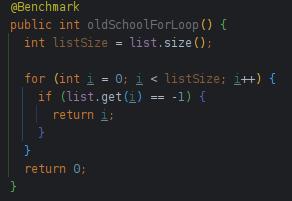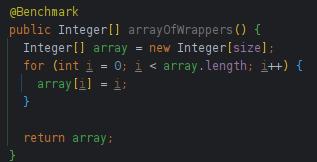
#Java performance comparison.
Today I decided to check the performance of different ways of converting an int variable to a String object in Java. 🧵👇
Today I decided to check the performance of different ways of converting an int variable to a String object in Java. 🧵👇
I searched on Stackoverflow:
📍Integer.toString(i)
📍"" +i
📍String.valueOf(i)
📍new StringBuilder().append(i).toString() - a bit strange way, but it was one of the suggestions😄
I have implemented 4 benchmarks using the JMH framework (see pictures).
Results 👇
📍Integer.toString(i)
📍"" +i
📍String.valueOf(i)
📍new StringBuilder().append(i).toString() - a bit strange way, but it was one of the suggestions😄
I have implemented 4 benchmarks using the JMH framework (see pictures).
Results 👇
✅Integer.toString(i) - 43.424 29.721 ns/op
✅"" +i - 27.870 ns/op
✅String.valueOf(i) - 28.371 ns/op
❌new StringBuilder().append(i).toString() - ns/op
Just don't use StringBuilder approach. Other approaches are for your taste. but I personally prefer: String.valurOf(i).
✅"" +i - 27.870 ns/op
✅String.valueOf(i) - 28.371 ns/op
❌new StringBuilder().append(i).toString() - ns/op
Just don't use StringBuilder approach. Other approaches are for your taste. but I personally prefer: String.valurOf(i).
That's a wrap!
If you enjoy my Java learning content:
1. Follow me @xpvit for more Java, Cloud, and Linux knowledge.
2. RT the tweet below to share this thread with your audience
If you enjoy my Java learning content:
1. Follow me @xpvit for more Java, Cloud, and Linux knowledge.
2. RT the tweet below to share this thread with your audience
https://twitter.com/xpvit/status/1629788926096429057
• • •
Missing some Tweet in this thread? You can try to
force a refresh










